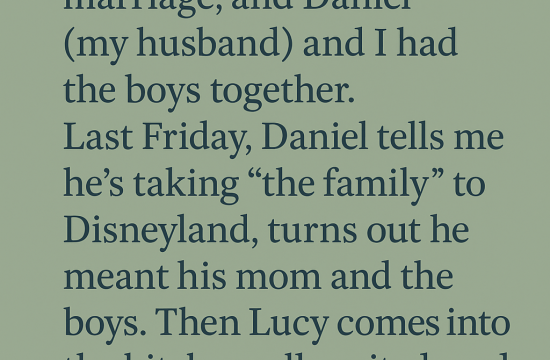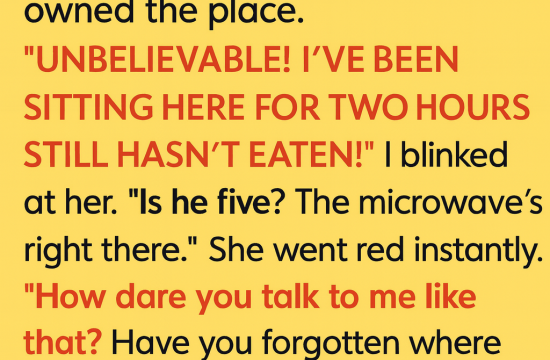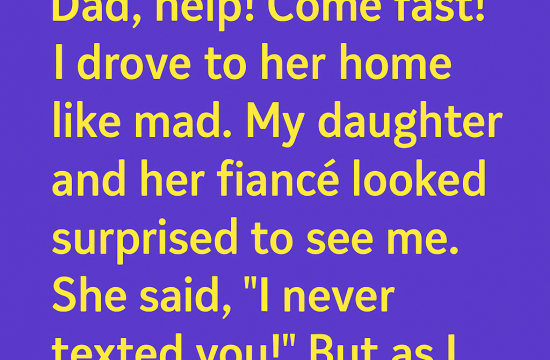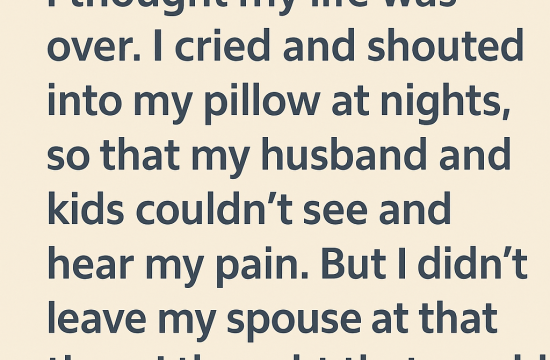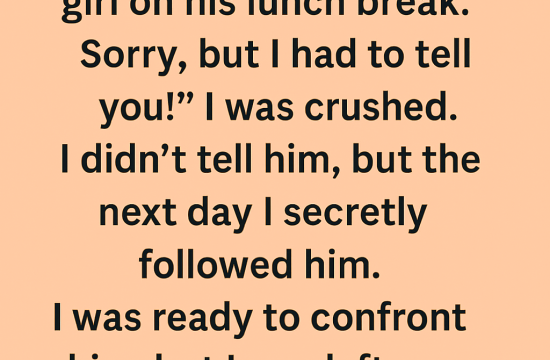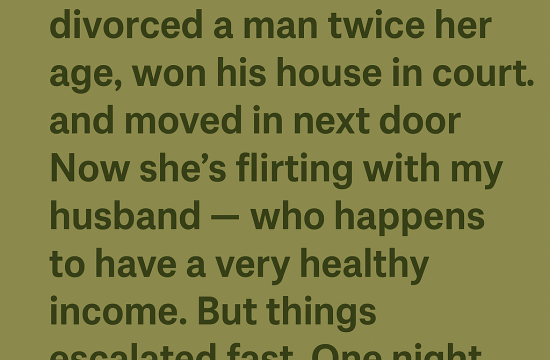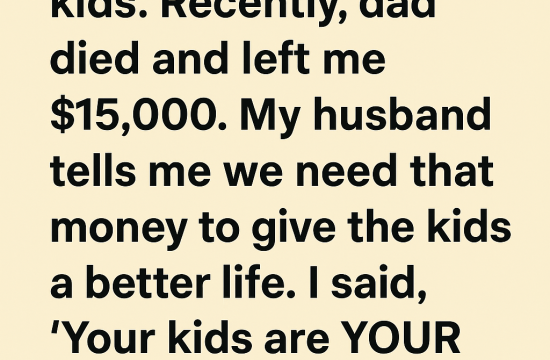When Amelia’s father gave her a soap bar and told her to take cold showers with it, she never thought he had an evil, hidden agenda. My world turned upside down the day my boyfriend told me the horrifying truth about that soap.
I’ve always been Daddy’s little girl — or at least, I thought I had been. Now the words make me want to throw up. I’m not his little girl, and he’s not the man I always believed him to be. Let me tell you why.
I was twenty-three and had lived with my parents until a month ago because Dad never wanted me to move away. He had given me the entire second floor: my bedroom and bathroom. Those two rooms were mine, my safe space — until the day Dad began to complain.
My father has a personality like a coconut: hard on the outside, soft inside. He lived by strict rules and strange little philosophies. “Character is built in discomfort,” he’d say. “Face the worst now if you want a life full of luxuries later.” But he was also the man who would bring me chocolates and ice cream when I was down. My mother, on the other hand, was all hugs and pasta and sweetness — the kind of mom who would never say no to my childhood requests.
Lately, though, they were different. Over the past few months the house had grown cold; the small kindnesses vanished and the laughter that used to echo down the stairs faded. It felt like I was living with strangers. Dad started nitpicking: “You and your friends were too loud last night,” “You’re staying out too late, Amy,” “You spend too much on useless things.” The comments were petty at first, then sharper, like a slow drip wearing down my confidence.
Then came the one that broke me. “You smell horrible. Go take a cold shower and use the soap I gave you,” he said. I was stunned. I’d never noticed any smell. Where was this coming from?
He handed me a green, chunky bar of soap with a strange odor and told me it would get rid of the “unpleasant body odor.” His words made me fiercely self-conscious. I stopped seeing friends as often. I found myself sniffing my hair, my clothes, even my breath — searching for the phantom stink that apparently offended him. I followed his orders obsessively. I took five showers a day just to use that soap, desperate to erase what I apparently was.
I scrubbed until my skin was raw. My limbs went dry and scaly; the texture of my skin changed. Still, he told me I “smelled like rotten onions.” “Did you use that soap, Amy? I don’t think you did,” he’d say, like a judge passing sentence. My mother watched in silence. She wouldn’t meet my eyes when he humiliated me, and she didn’t defend me. The fact that the one person I’d confided in my whole life stayed silent cut deeper than any chemical burn.
I started avoiding him. I’d scurry up the stairs the moment he pulled into the driveway and lock my door. I didn’t want him to see me. I didn’t want him to smell me.
The turning point came when Henry — my boyfriend of a few months and, thank God, a genuinely good man — came over. He’d noticed I’d been distant and he wanted to know why. “Where have you been, Amy?” he asked, his hands steady on my arms. I forced a smile and lied: “I’m fine.” But he saw through it. “You don’t look fine, babe.” I tried to laugh it off, and then, out of some terrible, humiliating anxiety, I asked, “Tell me one thing… do I smell bad?”
He laughed at first, then he went to the bathroom. A few minutes later he emerged holding the same green soap bar, his face drained of color. “Who gave you this?” he asked. “Are you taking cold showers with this?”
“My dad,” I said, trying not to panic.
Henry blinked, then looked furious. “They didn’t tell you, did they? Amy, this isn’t soap. It’s an industrial cleaner used to strip grease off machinery.” He explained that it could cause chemical burns. He showed me ingredients I’d never seen but somehow understood in his words that it was toxic.
I felt cheated, betrayed, and sick — not just physically but in my bones. How could Dad do this to me, his daughter? The dry, flaking skin, the pain, the relentless feeling that something in my body and my life had been altered — it all clicked into place. I wanted to call the police. I wanted to scream. Henry said, “We need to go to the hospital. Then to the police. This is abuse.” For the first time, the word “abuse” felt like it fit — ugly but true.
But I couldn’t say “Dad” and “abuse” together out loud. I couldn’t force those words into a sentence and look at him. Denial is a stubborn thing. “We can’t do that,” I told Henry. “Not yet. Help me get out of here. I’ll deal with them later.” He agreed, and we moved into a small apartment a few days later. It was cramped and barely furnished, but it felt like the safest place I’d had in months.
The next day I went back to confront them. Dad was on the couch watching TV, Mom in the kitchen. I walked in holding the soap like evidence and looked him straight in the eyes. “I never thought you’d do this to me, Dad,” I said. “This is toxic. It’s poison. It ruined my skin. Why did you do this?”
He smirked the way people smirk when they think they’re delivering a lesson. “Oh, so you finally found out what it is, huh? You needed to learn a lesson.”
“A lesson?” My voice trembled. “You nearly killed me. For what? Because you thought I smelled bad?”
My mother finally spoke up, but not to defend me. “Amy, yo—” she started, then stopped. I cut her off. “You knew, Mom, didn’t you? You were part of this?” Tears slid down her cheeks, but she wouldn’t look me in the face.
Then Dad said something that made something inside me fracture completely. He told me about a vacation he and Mom took last year, how they’d had too much to drink and met a fortune teller who told him my mother had been unfaithful. He’d confronted my mother, she’d admitted an affair, and begged him not to leave the family. He’d agreed — on one condition. He would make her pay. And he would make me pay too. “You’re not my daughter,” he told me, calmly, as if this explanation excused everything. “You’re not my blood.”
My heart shattered into a million pieces. I had been punished for something that was not my fault, for an act I had no control over. “You mean you gave me that toxic soap because you were angry at Mom? Because I’m not your child?” I asked, tears blurring my vision.
He turned his back. “You’re not my daughter,” he repeated.
I wiped my face and felt something in me harden. “Alright. I’m done with you,” I said. “You’ll be hearing from my lawyer.” I left the house that had once been my refuge and closed the door on the life I’d known.
In the days that followed I went to the hospital multiple times for treatment. Doctors treated chemical burns, prescribed creams, and warned me about infections. Henry sat through every appointment with me, holding my hand while my skin healed and while I unraveled.
I also spoke with a lawyer. The legal steps were painful and bureaucratic, but necessary. We filed for a restraining order and prepared the complaint. When Dad received notice of the restraining order and the impending lawsuit, his smugness cracked. Rumors spread through our small social circle; his reputation, painstakingly built over years, began to crumble. People who once admired him recoiled when they learned what he’d done. The man who’d taught me about character watched his own collapse.
My mother called and texted, begging me to come back, to forgive her, to remember the “good years.” I didn’t reply. How could I trust the woman who silently watched me suffer? If she couldn’t stand up for me — her child — when I needed her most, then what could I do but walk away?
Now, living with Henry, I feel a kind of peace that had been missing for ages. Our apartment is small and messy and full of mismatched mugs, but I laugh there again. I sleep without the dread that once settled like fog in my chest. I can’t remember the last time I felt so safe. I don’t know what the future holds for my relationship with my parents; maybe someday wounds will scar and we’ll talk, or maybe they never will. For now, I’m choosing myself.
Sometimes people talk about falling in love with the person who saves them. I don’t like to put Henry on a pedestal — he’s just a man who was there when I needed someone to believe me. But I can’t thank fate enough for bringing him into my life. I have no idea what I’d have done without him.
I still carry the green soap bar sometimes in my head like a talisman of the moment everything changed. It’s a reminder of betrayal, of lessons learned the hard way, and of the strange freedom that comes when you finally step away from the life you were taught to accept. I walk forward now with my skin healing and my shoulders lighter, determined to build a life that smells — literally and figuratively — of the goodness I choose, not of someone else’s bitterness.




